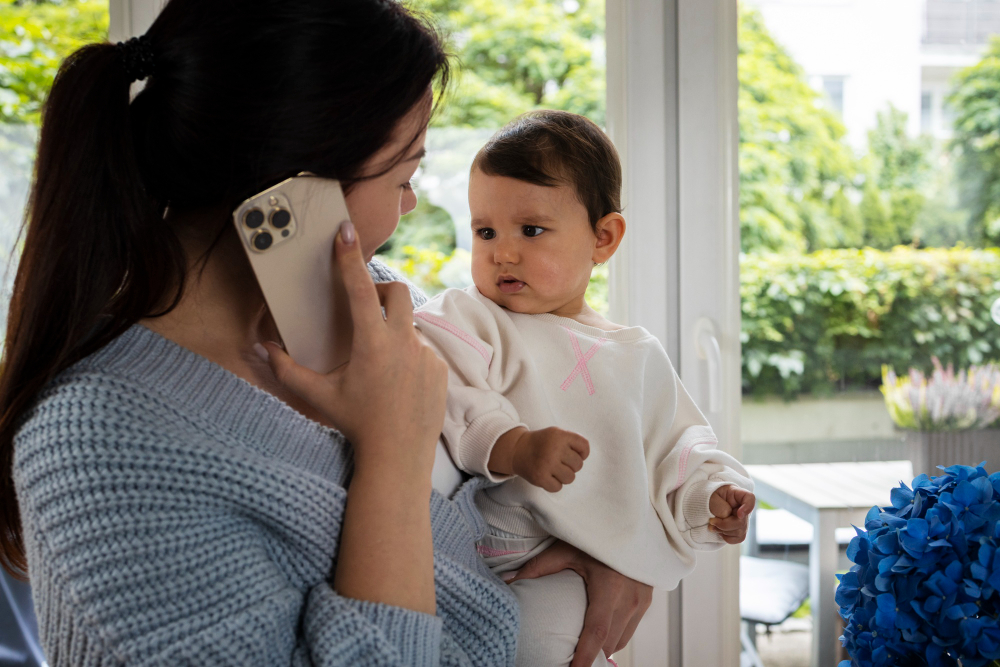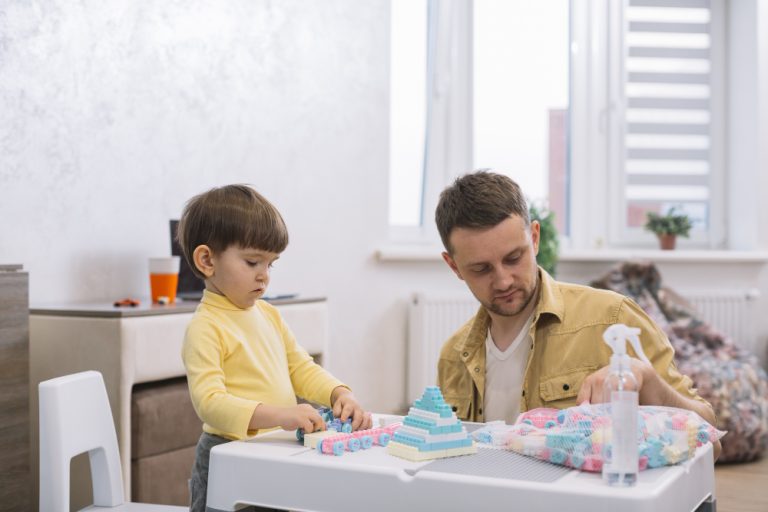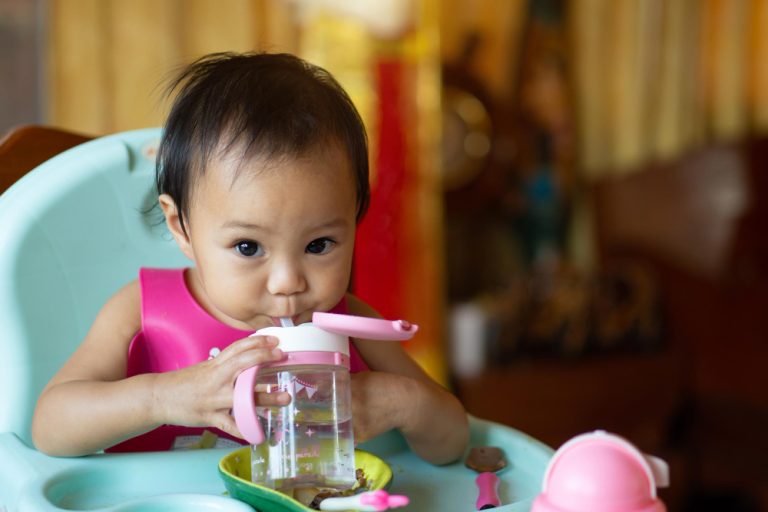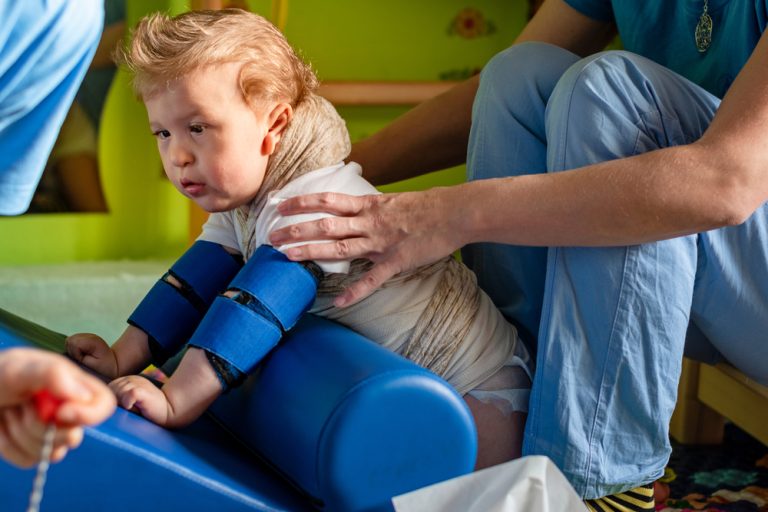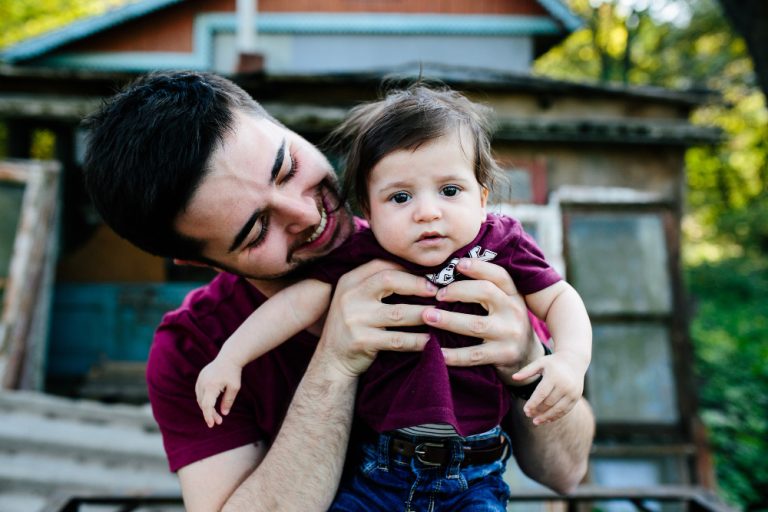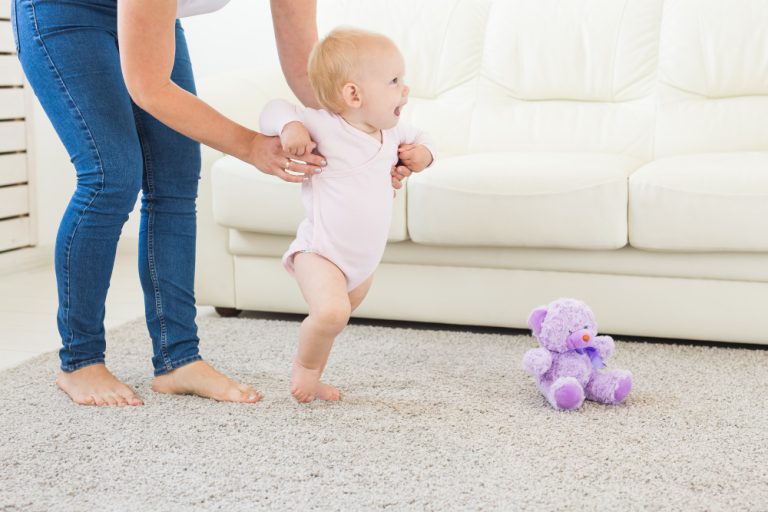When Do Babies Learn To Talk? Baby Talk Milestones And Tips
Have you ever found yourself eagerly awaiting the moment your little one utters their first word, marking a milestone in their language development journey? But have you ever wondered when do babies learn to talk? Imagine the joy that fills your heart when you hear that sweet, innocent voice for the very first time, connecting with you in a whole new way.
Understanding the Language Development Journey
- Delve into the fascinating stages of baby talk and witness the magic of their progress.
- Discover expert tips and activities to nurture your baby’s speech skills right from the start.
Recognizing Potential Speech Delays
- Learn about the signs of a speech delay and gain insights on when it’s crucial to seek professional help.
Undertake this enriching exploration of your baby’s language milestones and find ways to support their speech development. Witness the wonder of their evolving communication skills as we unravel the secrets of when do babies learn to talk and delve into the stages of language development in babies.
Baby’s First Words: When Do Babies Learn to Talk?

Introducing Baby Talk Milestones
- As a parent, one of the most magical moments is hearing your baby’s first words.
- It’s a milestone that marks the beginning of their language development journey.
- While every child is unique and develops at their own pace, most babies start uttering their first word-like sounds between 9 and 12 months of age.
- This period is known as the “babbling stage,” where babies experiment with vocalizations and begin to imitate the sounds they hear.
Understanding Speech Development from 12-18 Months
- Between 12 to 18 months, babies’ language skills undergo significant progress.
- They start using simple words and phrases to express themselves and understand familiar words and instructions.
- You’ll notice that their comprehension expands, and they communicate through gestures and repetitive babbling.
- It’s important to provide a nurturing environment by interacting and responding to your baby’s attempts at communication.
- Reading books, singing nursery rhymes, and engaging in playtime activities can further stimulate their language development.
Teaching Activities for Baby Talk
- To encourage speech development in babies, you can incorporate various activities into your daily routine.
- Talk to your baby often, using simple words and clear pronunciation.
- Label objects in their environment, describing what you see together.
- Engage in back-and-forth conversations, imitating their babbles and expanding on their sounds.
- Play interactive games like peek-a-boo and sing songs with repetitive phrases.
- These activities help babies build their vocabulary, develop listening skills, and practice mimicking sounds.
Signs of a Speech Delay
- While each child develops at their own pace, it is crucial to be aware of red flags that may indicate a speech delay.
- Some signs to watch for include limited babbling or lack of word production by 12 months, difficulty understanding simple instructions, and lack of attempt to imitate sounds or gestures.
- If you have concerns about your child’s speech development, it’s important to consult with their doctor or a qualified speech-language pathologist.
Let’s discuss these significant milestones in detail below.
Introducing Baby Talk Milestones
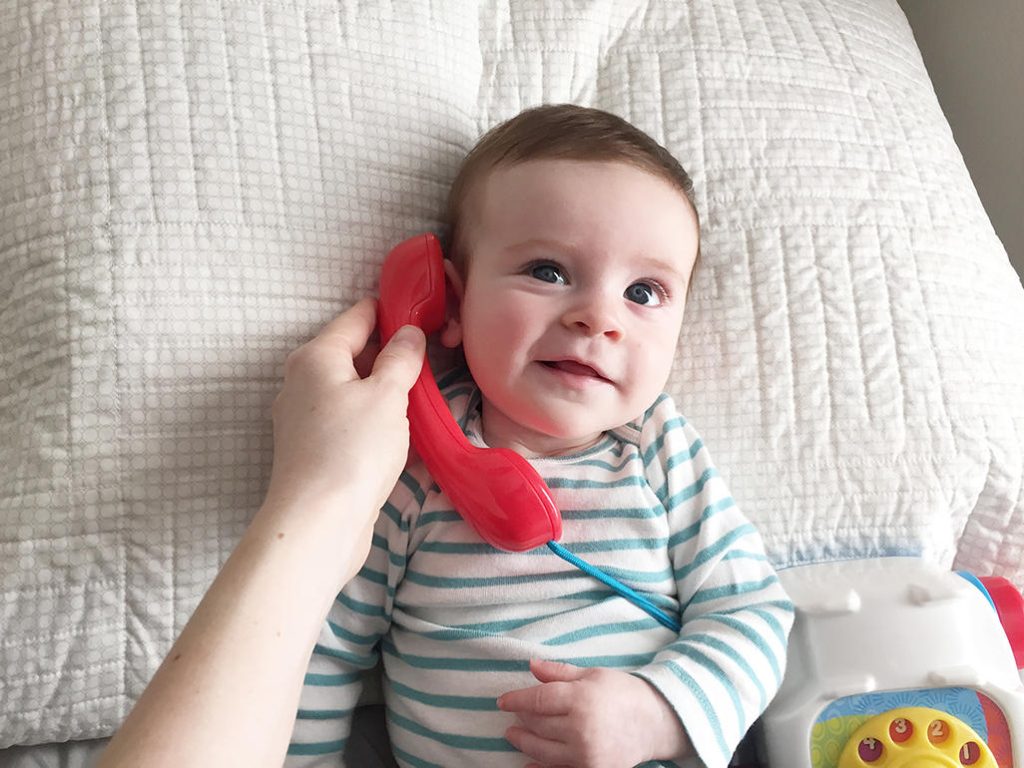
Parents often wonder, ‘When do babies learn to talk?’ Babies’ language development is an amazing journey filled with captivating milestones. Hearing their baby’s first words is one of the most anticipated moments for parents.
Baby talk milestones mark significant progress in a child’s language acquisition and provide a glimpse into their developing communication skills.
The importance of a baby’s first words cannot be overstated. It signifies a major cognitive and linguistic achievement as their brain processes and interprets different sounds to form meaningful words. These initial attempts at communication not only bring joy and excitement to parents but also build the foundation for future language development.
As babies grow, their babbling evolves into more purposeful and intentional sounds. At around 6 to 8 months, they start producing syllables like “ma-ma” or “da-da.” These repetitive sounds indicate their growing understanding of the rules of language and the sounds inherent in their native tongue.
By the age of 12 months, most babies are capable of saying their first recognizable words. It’s an incredible moment for both parents and little ones as they begin to connect objects, people, and experiences with specific sounds.
From simple words like “mama” and “dada” to familiar words like “ball” or “dog,” these early utterances open up a world of possibilities for communication.
It’s important to remember that each baby progresses at their own pace. While some may achieve certain milestones earlier, others may take a bit longer. The key is to provide a stimulating environment rich in language interactions.
Talking and engaging with your baby, using simple words and phrases, and responding to their babbles and gestures can facilitate their speech development.
In the next section, we will explore the language milestones and progress during the 12 to 18-month period, shedding light on the amazing advancements your baby will make in their speech journey. Keep nurturing their language skills, and soon, you’ll witness more delightful words and phrases that reflect their growing knowledge of the world around them.
Understanding Speech Development from 12-18 Months
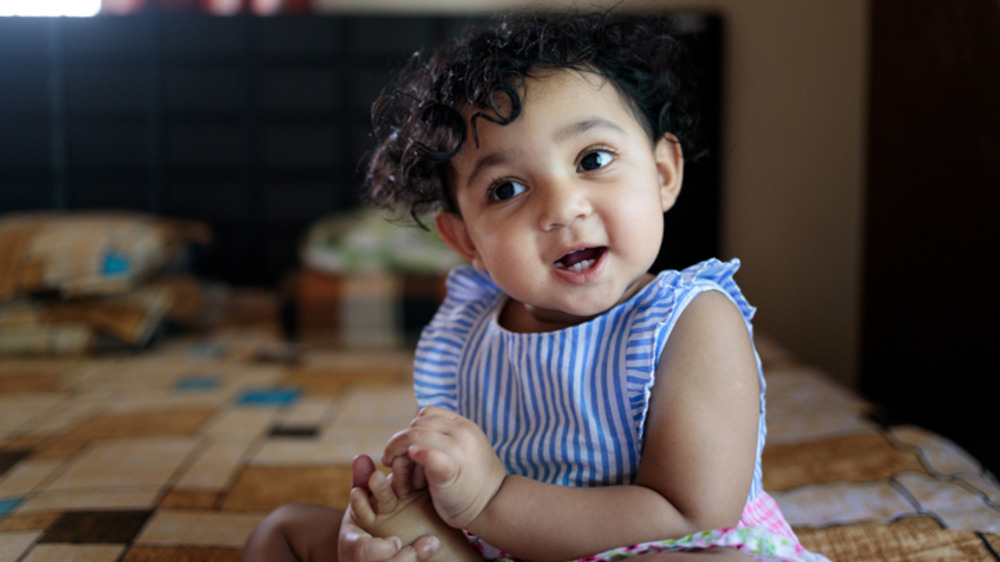
During the 12-18 month period, babies experience rapid language development, progressing from simple babbling to using their first words.
Here are the language milestones you can expect during this exciting stage:
1. Babbling Becomes More Sophisticated
- Between 12 to 15 months, babies’ babbling becomes more complex.
- They start experimenting with different sounds, intonations, and rhythms.
- It may sound like they are having conversations, even though they are not saying actual words yet.
2. First Words Emergence
- Around their first birthday, babies typically utter their first word.
- This magical moment is an important milestone as it marks their entry into the world of verbal communication.
- Their first words may include simple terms like “mama,” “dada,” or familiar objects or people names.
3. Vocabulary Expands
- By 18 months, most babies have a vocabulary of 5-20 words.
- They start adding new words to their repertoire regularly.
- They may also begin to combine words, such as saying “juice please” or “doggy big.”
4. Understanding Simple Instructions
- During this stage, babies comprehend simple instructions, especially those accompanied by gestures.
- They can follow commands like “give me the toy” or “come here.”
5. Pointing and Gesturing
- Babies develop the ability to point at objects they want or to draw attention to something interesting.
- They may also use gestures such as waving or nodding to convey meaning.
It’s important to remember that every child develops at their own pace, and these milestones serve as general guidelines. If you have any concerns about your child’s speech development, consult their pediatrician or a speech-language pathologist for a professional evaluation.
Remember, promoting speech development is an ongoing process that involves consistent interaction, talking, and reading to your baby. Celebrate their progress and provide an engaging environment for language learning.
Teaching Activities for Baby Talk
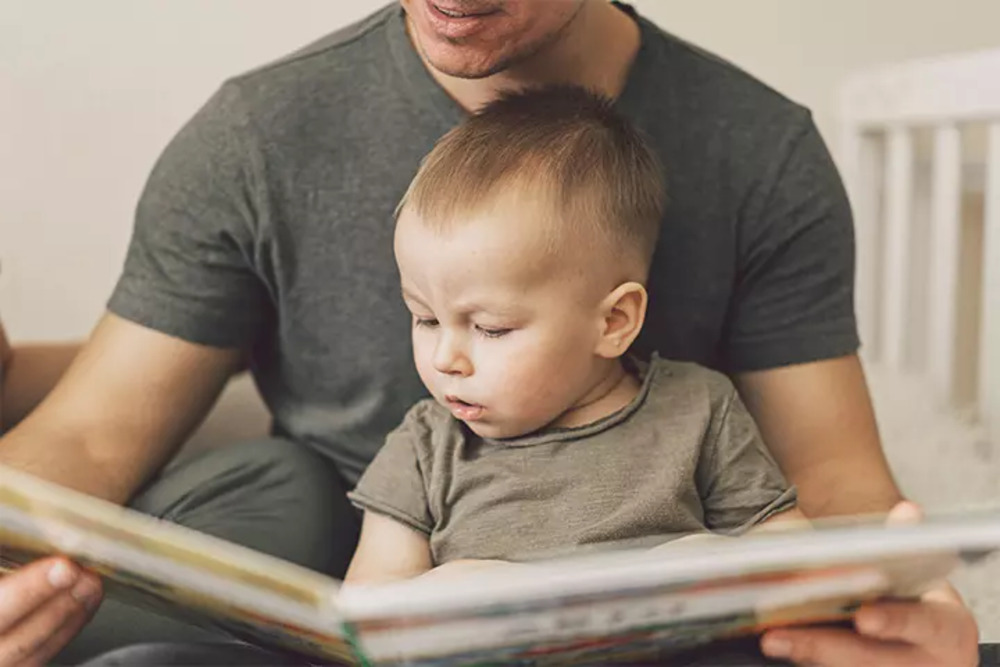
Encouraging speech development in babies is an exciting and important part of their overall growth. Here are some effective tips and techniques to support your baby’s language skills:
1. Talk and Engage with Your Baby
- Engage in frequent conversations with your baby, even if they’re not yet speaking.
- Talk to them while changing diapers, during mealtime, or while playing together.
- This helps them understand the rhythm and flow of language.
2. Use Simple Words and Repetition
- When communicating with your baby, use simple and repetitive words.
- Repetition helps reinforce language and builds familiarity.
- For example, when pointing at a toy, say its name multiple times, such as “ball, ball, ball.”
3. Read and Sing Nursery Rhymes
- Reading books and singing nursery rhymes introduce your baby to new words and sounds.
- This helps them develop their vocabulary and language skills.
- Choose books with colorful illustrations and rhythmic patterns.
4. Offer Choices and Encourage Communication
- Give your baby choices throughout the day, such as “Do you want the red block or the blue block?”
- Encouraging them to communicate their preferences helps boost language development and decision-making skills.
5. Play Peek-a-Boo and Hide-and-Seek
- Games like peek-a-boo and hide-and-seek involve anticipation, surprise, and social interaction, which are crucial for language development.
- These games encourage your baby to communicate and respond.
6. Use Sign Language
- Teaching your baby simple sign language, such as “more,” “please,” and “thank you,” can enhance their ability to communicate before they start speaking.
- Sign language helps bridge the communication gap and reduces frustration.
7. Limit Screen Time
- Excessive screen time can hinder language development.
- Instead, engage your baby in activities that involve face-to-face interactions, such as talking, singing, and playing together.
Remember, every baby develops at their own pace, so don’t compare them to others. If you have concerns about your baby’s speech development or notice any red flags, consult with a pediatrician or a qualified professional for further guidance.
Incorporating these activities into your daily routine can create a supportive environment that stimulates your baby’s language skills and sets the foundation for effective communication.
Signs of a Speech Delay

It’s important for parents to be aware of potential signs of a speech delay in their baby’s language development. While every child progresses at their own pace, certain red flags may indicate the need for professional evaluation and support.
Here are some signs to look out for:
Limited babbling or vocalization
- If your baby is not babbling or making any vocal sounds by seven months, it could be a cause for concern.
- Lack of cooing or expressing pleasure through sounds by around nine months may also indicate a delay.
Few or no recognizable words
- By the age of 12 to 15 months, most babies should be using a few simple words, such as “mama,” “dada,” or other word-like sounds.
- If your baby is not attempting any word-like sounds or gestures by this age, it’s worth discussing with their pediatrician.
Difficulty understanding or following directions
- Trouble understanding simple instructions or responding to their name can be a sign of language delay.
- If you notice your baby consistently having difficulty following basic commands by 18 months, it’s important to seek professional advice.
Limited social interaction and eye contact
- Babies with speech delays may have difficulties with social interaction, such as making eye contact or responding to their name.
- A lack of interest in engaging with others could be an indicator that further evaluation is necessary.
Frustration or tantrums due to communication challenges
- If your baby becomes easily frustrated or exhibits frequent tantrums due to their inability to communicate effectively, it could be a sign of a speech delay.
If you notice any of these signs, reaching out to a qualified healthcare professional, such as a pediatrician or a speech-language pathologist, can help determine if there is a need for intervention or therapy. Remember, early intervention is key in supporting your baby’s speech and language development.
The Final Note: When Do Babies Learn to Talk
To sum up, the journey of language development in babies is a wondrous experience filled with significant milestones. From eagerly anticipating their first words to witnessing the evolution of their babbling into purposeful sounds, each step marks a unique achievement in their communication skills.
By understanding the stages of baby talk and recognizing potential speech delays, parents can actively support their child’s language development.
As each baby progresses at their own pace, it’s essential to create a supportive environment rich in language interactions. Engaging in activities such as reading, singing, and playful conversations can significantly contribute to a baby’s speech development. And remember, if you have concerns about your child’s speech development, seeking professional guidance is crucial.
In the end, the magic of when do babies learn to talk lies not just in their first words, but in the entire journey of exploration, discovery, and connection. Witnessing the wonder of their evolving communication skills is a testament to the profound impact of communication in the early stages of life.

